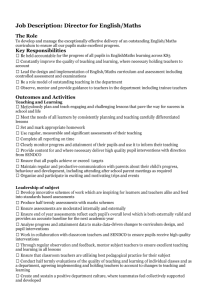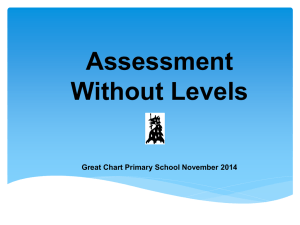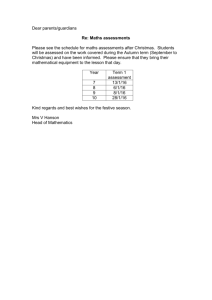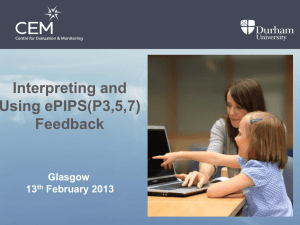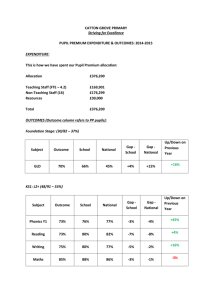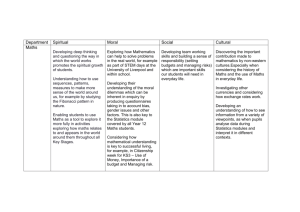Tips for Maths teachers working with Ethnic Minority
advertisement
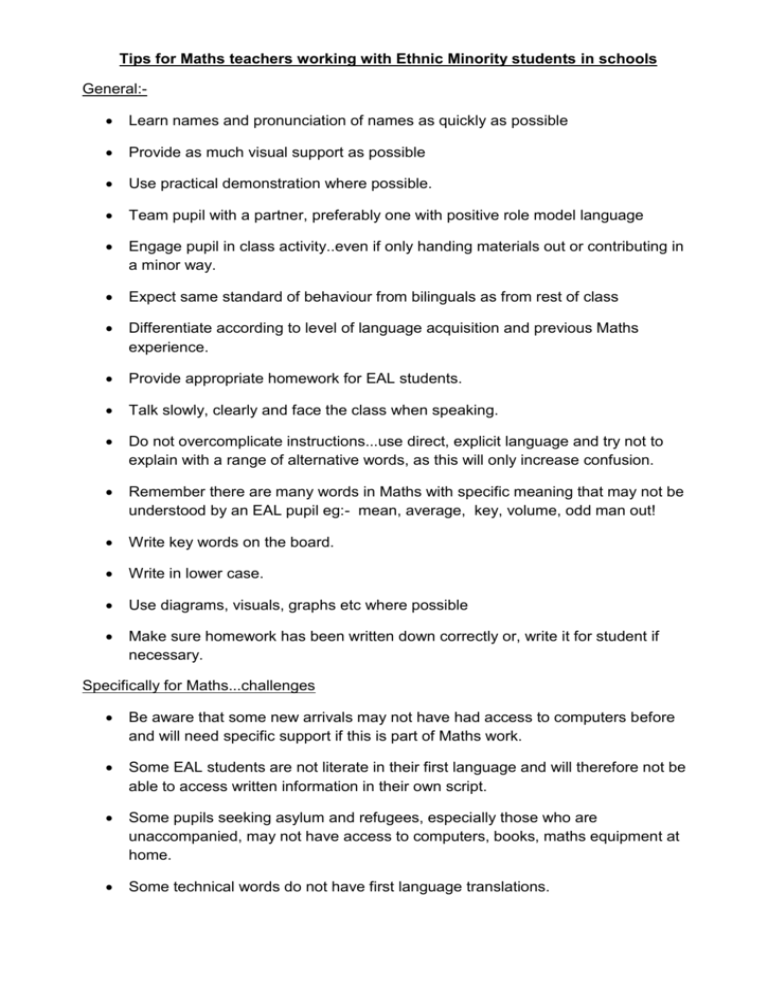
Tips for Maths teachers working with Ethnic Minority students in schools General: Learn names and pronunciation of names as quickly as possible Provide as much visual support as possible Use practical demonstration where possible. Team pupil with a partner, preferably one with positive role model language Engage pupil in class activity..even if only handing materials out or contributing in a minor way. Expect same standard of behaviour from bilinguals as from rest of class Differentiate according to level of language acquisition and previous Maths experience. Provide appropriate homework for EAL students. Talk slowly, clearly and face the class when speaking. Do not overcomplicate instructions...use direct, explicit language and try not to explain with a range of alternative words, as this will only increase confusion. Remember there are many words in Maths with specific meaning that may not be understood by an EAL pupil eg:- mean, average, key, volume, odd man out! Write key words on the board. Write in lower case. Use diagrams, visuals, graphs etc where possible Make sure homework has been written down correctly or, write it for student if necessary. Specifically for Maths...challenges Be aware that some new arrivals may not have had access to computers before and will need specific support if this is part of Maths work. Some EAL students are not literate in their first language and will therefore not be able to access written information in their own script. Some pupils seeking asylum and refugees, especially those who are unaccompanied, may not have access to computers, books, maths equipment at home. Some technical words do not have first language translations. Remember for some students from war-torn countries they will not have had formal teaching for years Some students will have had very formal teaching in Maths ( more akin to Maths in the 50’s/60’s…They may know an answer but not be able to problem solve effectively …or even understand how they worked it out. Some pupils may have little experience of data handling When setting assignments make sure they are culturally friendly e.g. Do not ask students to research into areas of which they will have had no past experience. Specifically for Maths...advantages Students enjoy the opportunity to engage in practical activities. This is often possible in Maths. Maths also lends itself to visual support eg…showing fractions, percentages, graphs etc. Many of our EAL pupils enjoy Maths and feel they are not under the same linguistic restrictions as other subjects (although Maths DOES demand complex language) The internet offers translation sites, access to cultural and linguistic information and a wide range of ICT support. Students can access material in their first language. Strategies for supporting EAL pupils •A supportive learning environment •Pair up with supportive pupil •Seating near front of class •Simplify questions •Prompt pupils to listen to key vocab/ specific information •Encourage use of first language •Key words in first language •Use of visuals, diagrams, video clips, pictures, symbols, images etc •Encourage exploratory talk to develop questioning and thinking that are challenging •Modelling and rehearsing language orally •Using talk partner •Adapting and providing additional resources •Encourage pupils to collect ideas in home language using for example, a dictionary website •Provide sentence starters, writing frames, word lists, talk frames, etc •Pre-teach key words and display around the classroom to help pupils give responses. •Involve technical staff to ensure appropriate software is loaded and correct options are selected. •Use multimedia facilities such as interactive software to model target language.
